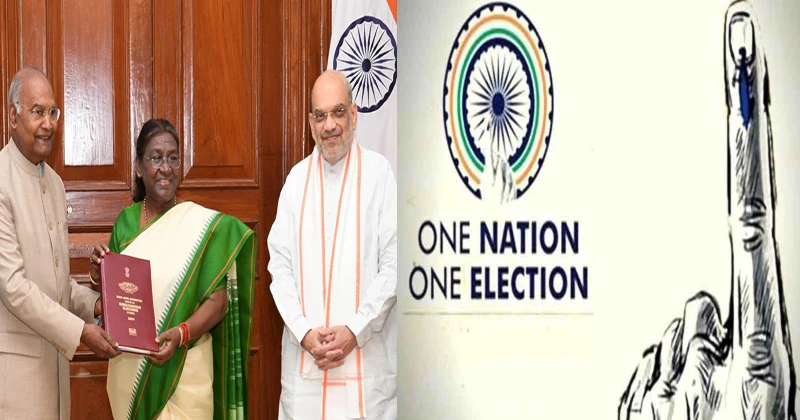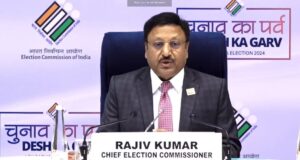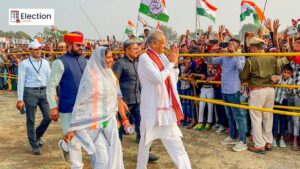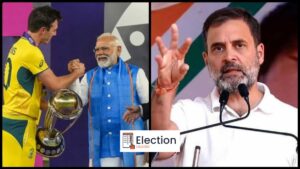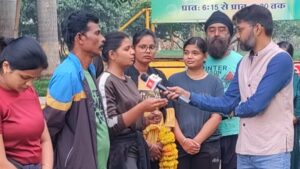In the labyrinth of Indian politics, the idea of “One Nation One Election” has emerged as a potential game-changer. Proponents argue that synchronizing the Lok Sabha, state assemblies, and local body elections into a single event could bring numerous benefits, ranging from economic savings to enhanced governance. However, behind the allure of simplicity lies a complex web of challenges and considerations that demand careful scrutiny.
The concept of One Nation One Election isn’t entirely novel. Several countries, including the United States, conduct simultaneous elections at different tiers of government. Advocates in India argue that a similar approach could streamline the electoral process, reducing the burden on both taxpayers and the administrative machinery. Additionally, they contend that it could curb the perpetual cycle of elections, allowing elected representatives to focus on governance rather than perpetual campaigning.
One of the primary arguments in favor of One Nation One Election is its potential to save resources. India, with its vast electorate and frequent elections at various levels, incurs substantial costs in terms of manpower, logistics, and security arrangements. Consolidating elections could alleviate this financial strain, enabling better allocation of resources towards development projects and welfare schemes. Moreover, it could mitigate the disruptions caused by election-related activities, which often disrupt normal life and economic activities.
Furthermore, proponents of this idea emphasize the governance benefits. With elections occurring simultaneously, there would be fewer instances of policy paralysis or fragmented mandates, allowing for more stable and decisive governance. It could also address the issue of frequent imposition of the Model Code of Conduct, which restricts the government’s ability to announce new policies and initiatives during the election period. This, they argue, would foster a more conducive environment for sustained development and reforms.
However, the road to One Nation One Election is fraught with challenges and potential pitfalls. One of the foremost concerns is the constitutional and logistical complexity of implementing such a system in a diverse country like India. The Constitution provides for fixed terms for state assemblies and the Lok Sabha, necessitating constitutional amendments to synchronize their schedules. This could pose a formidable hurdle given the need for consensus among diverse political parties and states with varying political interests.
Moreover, critics argue that simultaneous elections could undermine the federal structure of India’s polity. States often have their own unique political dynamics and issues that deserve separate electoral mandates. Synchronizing elections could overshadow regional concerns and reduce the diversity of voices in the political arena. It could also disadvantage smaller parties and regional players, who may struggle to compete on a national stage dominated by major political alliances.
Another significant concern is the potential for increased centralization of power. In a country as vast and diverse as India, decentralized governance has been crucial in addressing local needs and promoting inclusive development. Simultaneous elections could tilt the balance of power towards the center, diminishing the autonomy of states and local bodies in decision-making. This could exacerbate existing tensions between the center and states, particularly in regions with strong regional identities and aspirations.
Furthermore, the practical challenges of conducting simultaneous elections on such a massive scale cannot be underestimated. India’s electoral infrastructure, already under strain during regular elections, would face unprecedented logistical demands. From voter education and registration to security arrangements and ballot counting, the sheer scale of operations would require meticulous planning and execution. Any lapses or irregularities could undermine the credibility of the electoral process and erode public trust in democracy.
In conclusion, while the idea of One Nation One Election holds promise in theory, its implementation in India poses formidable challenges that cannot be overlooked. The potential benefits in terms of cost savings and governance efficiency must be weighed against the risks of centralization, loss of regional voices, and logistical hurdles. Any move towards synchronization must be preceded by thorough deliberation, consensus-building, and safeguards to preserve the principles of federalism and democratic pluralism. Ultimately, the quest for electoral reform should prioritize inclusivity, transparency, and the preservation of India’s rich democratic tapestry.

